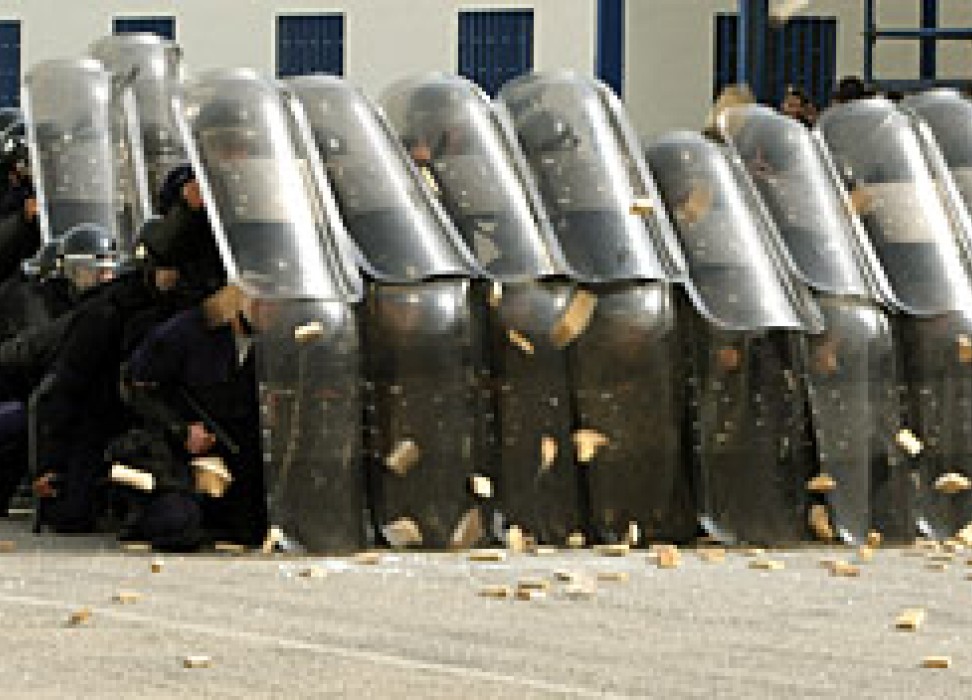A Code of Conduct to help protect human rights in Lebanon
24 January 2012

A newly adopted Code of Conduct for Lebanon’s Internal Security Forces (ISF) sets out professional and ethical standards of behavior to guarantee respect for human rights and protection of public freedoms in accordance with Lebanon’s Constitution and its human rights obligations.
The Code, which was drafted with the technical assistance of the UN Human Rights office (OHCHR) and the support of the British Embassy in Lebanon, draws a roadmap of what is allowed and what is prohibited in line with international human rights treaties and conventions signed and ratified by Lebanon.
For Fateh Azzam, Regional Representative of the UN Human Rights office in the Middle East, the Code of Conduct is a first step towards police reform in the country. “The Code of Conduct is only a means to reach the true objective, which is to reinforce the role of security forces in actively and effectively protecting human rights in Lebanon,” he said. “It should be distributed widely so that the general public know their rights and at the same time help the ISF in carrying out their duties.”
The Code includes articles on professional duty, reflecting the professional obligations of ISF personnel; duty of superiors, setting a proper example and being a role model; honesty and integrity, steering clear of all forms of corruption; impartiality, the moral basis for treating one and all justly and fairly; conduct, refraining from resorting to torture, cruel, inhumane and degrading treatment; discipline, refraining from engaging in prohibited and illegal actions; the respect of the right to life in the use of force and firearms; and, last but not least, rights of suspects and detainees.
Azzam also stressed the importance of the Code of Conduct seen in conjunction with various activities undertaken by Lebanon to promote and protect human rights. Among these are two main projects with direct bearing on the work of the ISF and all security forces in Lebanon: the establishment of a national human rights institution, as submitted recently before the Parliament, and a draft human rights national plan being developed by the parliamentary human rights committee.
Major General Rifi, Director General of the ISF said that the Code “encourages at the same time the respect of laws and regulations, the promotion of public interest and the cooperation with other administrations.”
The distribution of the Code of Conduct to 38,000 ISF personnel began in December 2011. Every member of the ISF is expected to receive a personal copy of the Code and specific follow-up training is planned for 2012 and beyond as part of an extensive implementation programme.
The Code of Conduct was launched during a ceremony held in January 2012. During the event, Prime Minister Najib Mikati said that policing is a partnership between the police and citizens and that, the Code “is the first step in cementing this partnership into Lebanese society.”
24 January 2012

